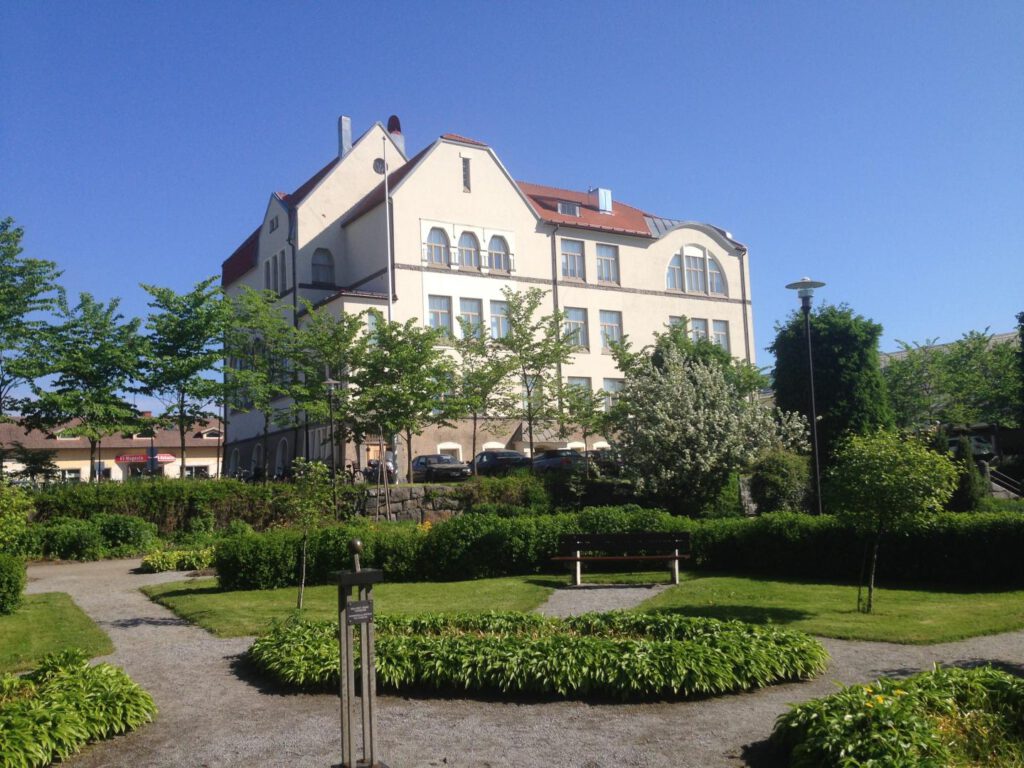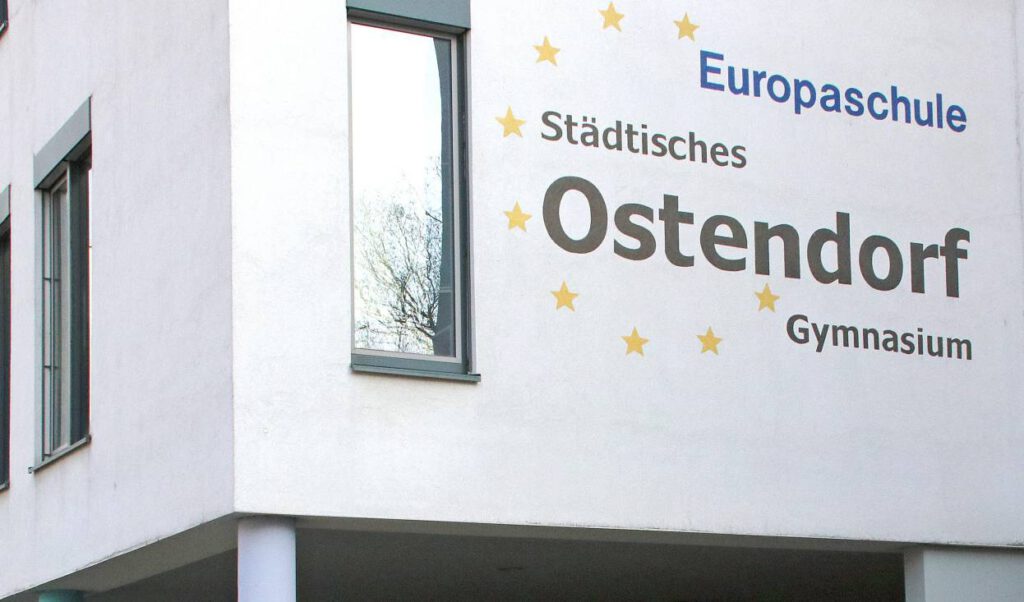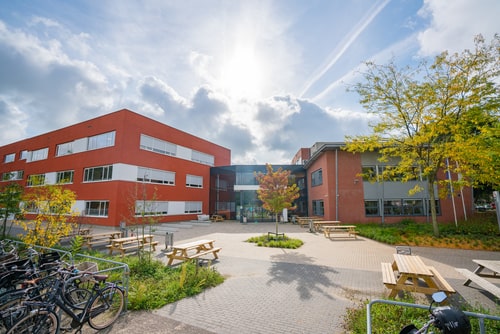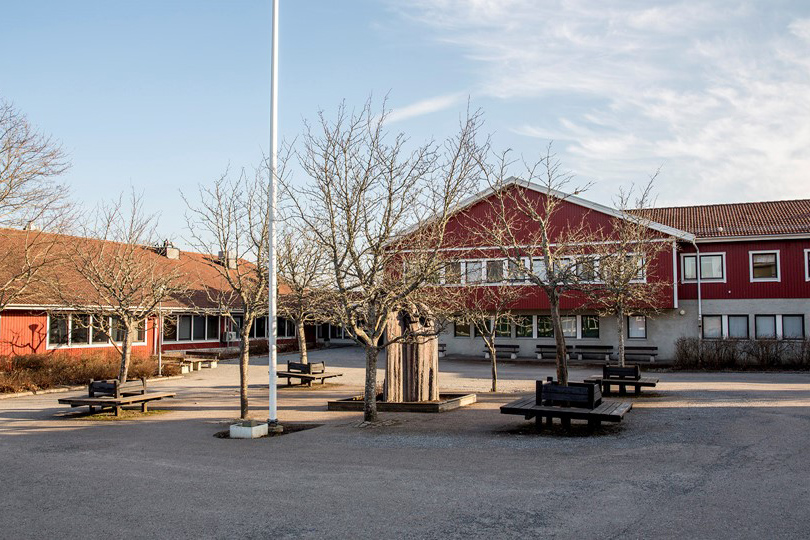About Us
PIXEL
We are four partners in the PIXEL project and we have been working together for many years.
We are from…
– Jakobstads gymnasium in Jakobstad, Finland
– Europaschule Ostendorf-Gymnasium in Lippstadt, Germany
– Udens College in Uden, Netherlands
– Almunge skola near Uppsala, Sweden

Finnland
Jakobstads gymnasium is an upper secondary school with 340 students aged 15 to 19, and 25 teachers. The town of Pietarsaari (Jakobstad in Swedish) is situated on the west coast of Finland, which is a predominantly Swedish speaking area. Here in Pietarsaari, the Finnish speakers are in a minority, as opposed to the overall situation in Finland where Swedish speakers generally are the minority.
Jakobstad gymnasium offers five study programs: Arts, Music, Sports, Local Culture and heritage. In these programmes students have the opportunity to be creative and develop their entrepreneurial skills. We have always been an active school ready for new challenges. The future is constantly present in our everyday lives, guiding our actions and decisions – whether we are aware of that or not.
The school is part of the JA Company programme and has been very successful in the nationwide contest „Company of the year competition“. We have very far developed collaboration with the local business sector and the region development company Concordia. In that collaboration we with questions about what future workalike, products and services will look like.
In this project we can offer our partner schools the great knowledge of our school and region in the field of circular economy. What we wish to gain is return is our ability to predict future trends since our region, and in extension our students, need to be at the leading edge of entrepreneurial skills, since our region strongly depends on export. Therefore it is of absolute importance to establish connections to other European countries, which we can achieve with this project.

Germany
The Europaschule Ostendorf-Gymnasium is located in the mid-west of Germany in between Dortmund and Paderborn and provides general education in a local area. In August 2009 the school was awarded the title of “Europaschule”, which shows its commitment to the European idea.
There are about 800 students and 70 teachers at our school. The students are between 10 and 18 years old. There are some pupils with specific needs like pupils at risk of social exclusion, migrants and refugees. Integration is one of the basic aims of our school. From this it follows that language skills are getting more and more important even in daily school-life. All these pupils are supported by special staff – e.g. social worker, external teachers, language teachers, students and parents supporting social integration. The school has bilingual classes, which could be helpful for the other schools when it comes to fostering language skills (exchange of teaching methods, job shadowing).
Due to our diverse school community we have many personal contacts across Europa and beyond. We benefit from a strong dedication among students, parents and teachers to support exchanges and personal encounters in general and to work on European projects both within and beyond the classroom. This is why students are particularly requested to do their practical training abroad. We would like our students to profit from becoming more independent and self-organized in a national and European context with conveying future literacy in a practical and student-oriented way.
When it comes to digitalization the school has introduced the obligatory use of iPads from form 7 onwards plus offering a large number of iPads for flexible usage for the younger students. In every classroom there is a beamer, document camera and apple-TV to further the students‘ and teachers‘ digital competence. Every teacher was provided with an iPad in summer 2019. There are regular trainings for the teachers as well as workshops for the use of ICT in different subjects, including the implementation of the Media Scouts programme, which is based on peer teaching. All this is based on the agreements and regulations written down in the school‘s media curriculum. As a recognition of the efforts made and the accomplished goals the school was designated as “Digitale Schule”.

Netherlands
Uden is a town in the agricultural countryside, although most people work in industries and services.
The North Brabant region is at the forefront of the high-tech industry in the Netherlands. In general,
the level of education is quite high and the region has low unemployment.
Udens College offers all forms of secondary education, both theoretical and professional. We have a
total of around 2,500 students divided over two locations. Our vocational location has 1250 pupils
and about 170 staff members. Our school has a wide variety in nationalities, children from foreign
workers and refugees. We teach students with the opportunity to develop themselves both as
humans and intellectually.
Udens College has a long history in international activities and in integrating the European dimension
into the school curriculum. The school is one of 37 ELOS schools (Europe as a learning environment in
schools) in the Netherlands, which promote European citizenship. The world and especially Europe is
getting smaller and international connections are intensifying. We thus have to prepare future
employees for this big challenge. So the UC doesn‘t only focus on its region or province, the process
is rather taking place in a lot of European countries, so we want to exchange experiences and learn
from schools for a better educational system in Europe. Not for ourselves, but for our pupils, who
own the future.
Our schools reinvent themselves, changes are part of its development. As today‘s jobs change, the
skills and competences needed for these future jobs are changing from today on. Employees of the
future must be self-confident, cooperative, able to act independently, responsible, used to ICT,
innovative and creative both in thinking and problem solving. And the students must be able to speak
and understand English.
5 years ago UC started to change its educational system, which is due to a changing society. Our
school system ist best defined in 4 major cornerstones: curriculum, coaching of pupils, possibility to
develop a talent and finally the possibility to expand the class curriculum with extra classes. Changing
the organization, program and curriculum without dropping results, experience and skills is only the
first step in the bigger story we call the Udens model, which might also offer initiatives to our
partners.
Together with a number of international relations (different schools in the E.U.) we give our students
the opportunity to work together with students of their own age: speaking English, learn about other
cultures and of course socially they also make huge steps during these exchanges. And finally they
always have commun assignments to work on, projects connected to one of the 17 UN goals.

Sweden
Almunge skola is a small school situated in the countryside near the city of Uppsala in the mid-east
of Sweden. Uppsala has got the oldest university of Scandinavia and the educational level in the area
is quite high.
We have about 500 students from the age of 6-16 years. The teachers and the administration of the
school are very committed and we use science-based methods to develop the teaching process.
Language studies and social science are important parts of the education. The students learn English
from the age of 7. Furthermore, they can choose between German and Spanish from the age of 11.
Almunge skola has got mixed ability classes which includes students with special needs. In the village
of Almunge only a small percentage of the parents have got a university degree. This differs from
other parts of the region and affects the learning outcome oft he students. Inclusion of students with
special needs and integration of immigrants are important issues for us.
We want to prepare our students for a global and flexible job market, which requires new skills. The
majority of our students have a non-privileged background, which has not given them the natural
gateway to innovative entrepreneurship. Because of that we are interested in learning more about
how to proceed in finding different tools and methods to foster the creativity of the students, their
ability to solve problems and their ability to cooperate and communicate. This includes the use of AI
and other digital tools in a smart and efficient way. We have to teach the students how to evaluate
the advantages but also the risks of a digitalized society.
The school has got qualified career coaching as part of the curriculum to give the students equal
opportunities to develop and succeed. In addition to this, we have developed a close partnership
with local companies, organizations and entrepreneurs. Almunge skola organizes annual internships
for the 8th and 9th grade students. We also uses advanced methods of speaker training for the
students. A digital world requires an even higher ability to communicate orally and we are aware that
we need to prepare our students for that. Practicing argumentative skills is part of the curriculum.